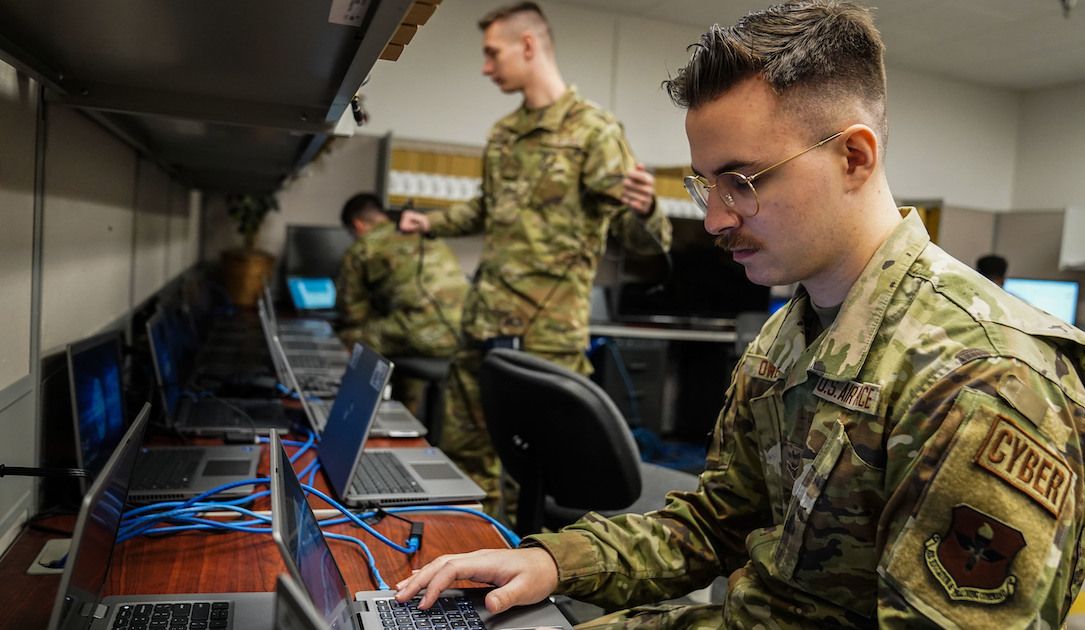Martin Matishak
 A national association of current and former military digital security leaders is calling on Congress to establish a separate cyber service, arguing that the lack of one creates an “unnecessary risk” to U.S. national security.
A national association of current and former military digital security leaders is calling on Congress to establish a separate cyber service, arguing that the lack of one creates an “unnecessary risk” to U.S. national security.In a March 26 memorandum, the Military Cyber Professional Association urged lawmakers to establish a U.S. Cyber Force in this year’s annual defense policy bill.
“For over a decade, each service has taken their own approach to providing United States Cyber Command forces to employ and the predictable results remain inconsistent readiness and effectiveness,” according to the group, which boasts around 3,700 members.
“Only a service, with all its trappings, can provide the level of focus needed to achieve optimal results in their given domain,” the memo states. “Cyberspace, being highly contested and increasingly so, is the only domain of conflict without an aligned service. How much longer will our citizenry endure this unnecessary risk?”
The creation of a Cyber Force would follow the arrival of the Space Force in 2019. It was the first new branch of the U.S. military in 72 years, bringing the total to six.
The association’s missive is likely to spark fresh debate on Capitol Hill, where an increasing number of policymakers see a cyber-specific military service as an inevitability.
Digital threats posed by foreign adversaries like China, Russia, North Korea and Iran have only evolved and multiplied since Cyber Command, the military’s digital warfighting arm, was first established in 2010.
Meanwhile, concerns about the talent pipeline into the command — which is subject to the whims of the military services — has become a perennial issue on Capitol Hill, where some feel the country’s offensive cyber mission is being given short shrift, impacting Cyber Command’s overall readiness to combat digital threats.
Last year’s bipartisan defense policy bill contained two provisions to address those worries. The first required Cyber Command to submit a report detailing the support it is receiving from the military services, while the second asked for an examination of any readiness shortfalls within the Cyber Mission Force — a cadre of roughly 6,200 personnel culled from the military branches that is slated to grow from 133 to 147 teams over the next few years.
Cyber Command and NSA chief Gen. Paul Nakasone testified before the Senate Armed Services Committee earlier this month that the two studies would be transmitted to lawmakers in the coming months, predicting they would show “there are areas that we can work with the services to improve.”
No rush?
Space Force owed its relatively fast and frictionless creation to a unique set of circumstances, including major buy-in from Congress. Former President Donald Trump and Vice President Mike Pence also pushed the idea inside the White House and touted it at campaign rallies, even after the force was already established.
By contrast, there is currently no political will within the Biden administration to create a seventh military branch, and there has been no sustained push, as of yet, by senior lawmakers for one.
In its memo, the association says that while “steps should be taken to establish such a service, with urgency, pursuing it in a hasty manner would likely prove to be a source of great disruption and risk to our own forces and operations.”
Therefore, any legislative approval of a Cyber Force should be accompanied by a “thorough study to determine what this military service should look like, how it be implemented, and the applicable timeline,” according to the group.
Rear Adm. Mark Montgomery, the former executive director of the Cyberspace Solarium Commission, said the memo was necessary because “we’ve reached the point where we’re operating inefficiently, with multiple services” providing training, maintenance and equipment to the country’s cyber operators.
“We can achieve efficiency,” Montgomery, who leads the association’s legislative affairs, told The Record. “We can, I think, raise readiness and provide Cyber Command with a much more flexible tool.”
Congress “has done a good job” giving Cyber Command, and Nakasone, “unique” attributes for things like acquisition, he noted.
“But basically we're utilizing a workaround, instead of the most efficient, effective practice, which is to create a separate and unique cyber force,” Montgomery said.
No comments:
Post a Comment